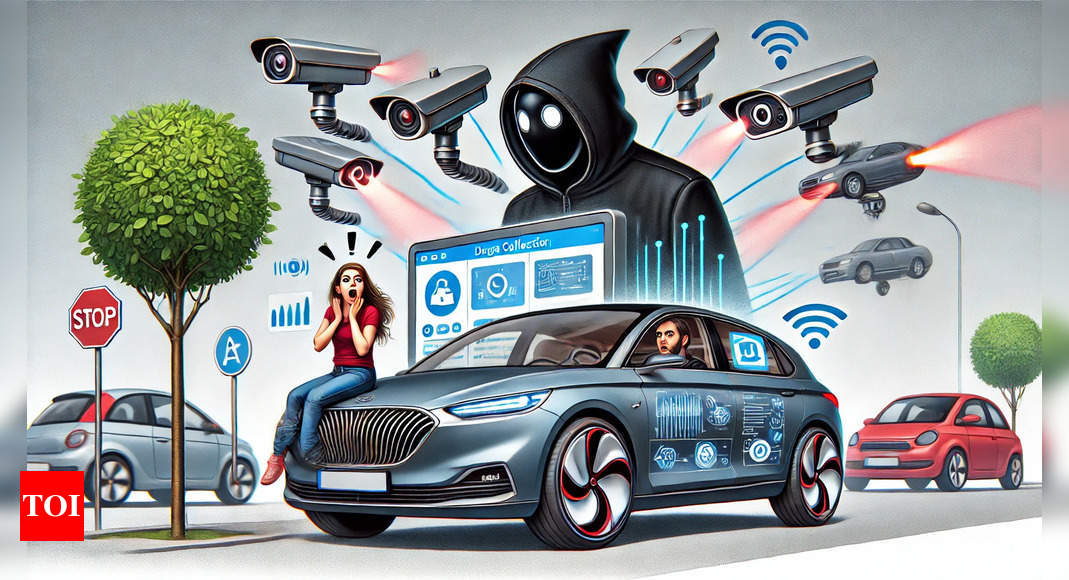
The cars today make James Bond’s cars look tame in comparison, but is your lean and mean machine spying on you? Modern vehicles can collect up to 25 gigabytes of data per hour, more than what a two-hour 4K movie requires. Connected cars, which are integrated into networks or the internet, have transformed automotive technology. These vehicles are not just for transportation anymore; they are sophisticated data hubs equipped with computers and sensors inside and out.They monitor everything from your location and driving behaviour to sensitive biometric information like heart rate and facial expressions.
Despite the convenience and safety benefits, the extensive data collection network embedded in today’s cars has alarmed privacy advocates. As a car owner, you might be surprised to learn how little control you have over the data your vehicle collects. This data, while useful for enhancing driving experiences, is also a gold mine for information brokers who can sell it without your consent. Some drivers have even faced higher insurance rates after being unknowingly enrolled in programs like OnStar Smart Driver, which shares driving data with the insurance industry.
Protecting Your Privacy
With privacy concerns mounting, it’s crucial for car owners to take proactive steps to manage their personal data within interconnected vehicles. Here are some strategies to help you avoid being spied on by your car:
- Educate Yourself: Start by understanding your vehicle’s data collection capabilities. Review your owner’s manual or consult with your dealership to learn what data is being collected and how it is used.
- Adjust Privacy Settings: Explore and customize your car’s privacy settings to protect your personal data. This might include disabling certain recording features or data-sharing with third parties.
- Opt-Out When Possible: Look for and use opt-out features for any data collection programs that make you uncomfortable. Deactivate non-essential connected services that could compromise your privacy.
- Ensure Secure Connections: Use strong, unique passwords for features like in-car Wi-Fi. Be cautious about performing sensitive transactions or communications over these networks.
- Stay Updated: Regularly update your car’s software to protect against vulnerabilities. Install only trusted applications in your car to avoid potential security breaches.
- Stay Informed and Engage with Manufacturers: Understand your rights under existing data protection laws and participate in discussions about future regulations. Demand transparency and robust security measures from car manufacturers and service providers to ensure they handle consumer data ethically.
As car technology continues to advance, particularly with the integration of AI, the impact on our data privacy and security will only grow. While auto manufacturers and legislators have a significant role in data protection, individual car owners must also take proactive steps to safeguard their personal information. By educating yourself, adjusting privacy settings, opting out of unwanted data collection, ensuring secure connections, staying updated, and engaging with manufacturers, you can better protect your privacy and enjoy the benefits of modern vehicle technology without compromising your personal data.
